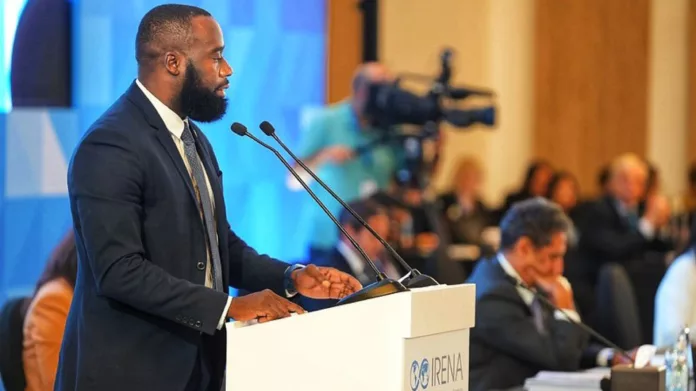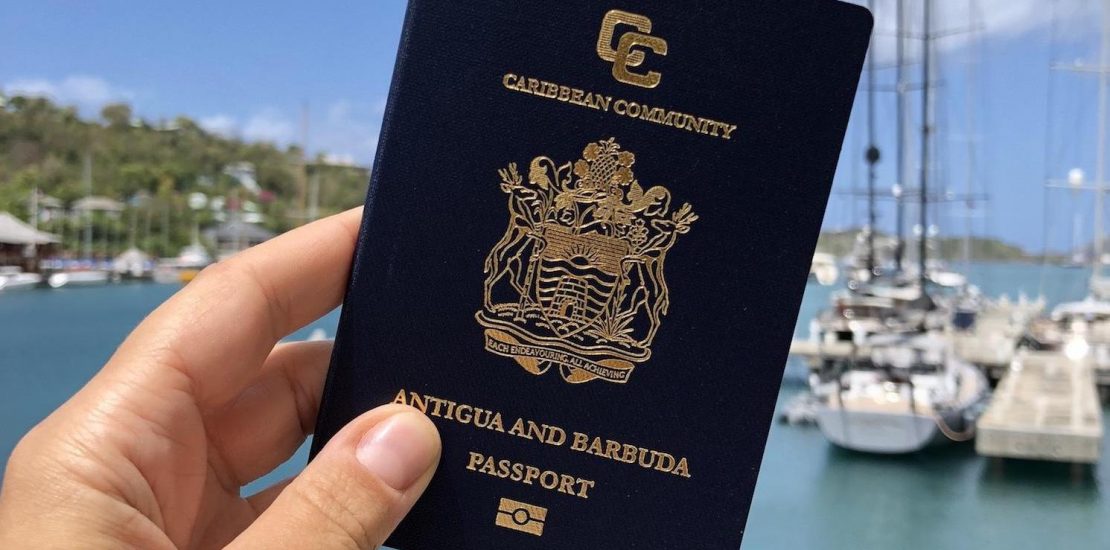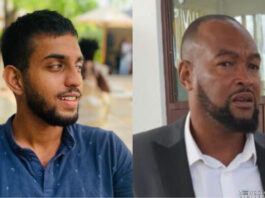Antigua and Barbuda’s Deputy Permanent Representative to the United Nations, Tumasie Blair, left a sobering yet inspiring message with the members of the International Renewable Energy Agency (IRENA) as he brought his tenure as Chairman formally to a close during the opening of the agency’s 26th council meeting in Abu Dhabi, capital of the United Arab Emirates.
IRENA unites over 150 countries with the goal of achieving a future where the transition to renewable energy is a primary consideration in their efforts to expand their economies and secure a sustainable future.
As he handed over the chairmanship of the intergovernmental organisation to the United States, Blair used his farewell speech to reflect on a demanding but rewarding term which covered considerable ground in laying out the work of the agency over the next biennium.
While reflecting, the Antiguan diplomat said he was inspired by the mobilised and urgent action that the agency took in accelerating the renewables-based energy transition for countries around world.
“This would not be possible without each and every one of us and our commitment to the mission of the agency,” Blair noted.
“It is because of our engagement in this platform on the realities and opportunities on the ground, that we inform and guide the work of the agency, and collectively steer global action towards a just and inclusive energy transition,” he continued.
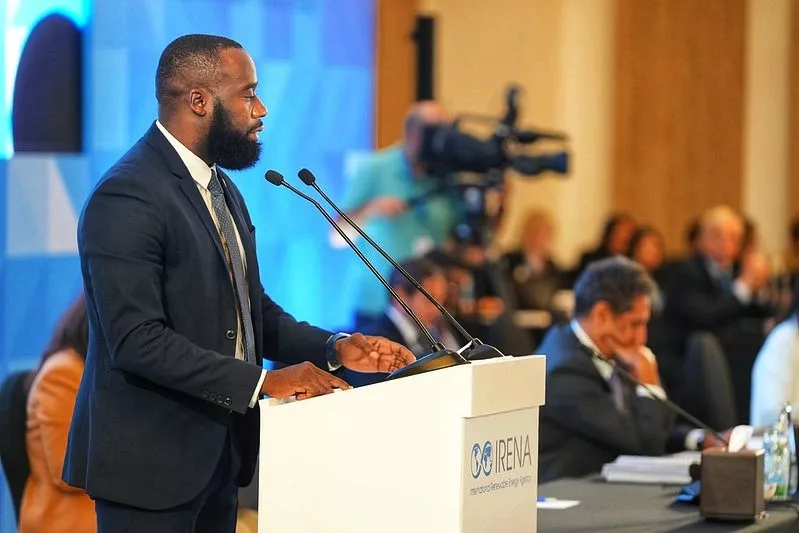
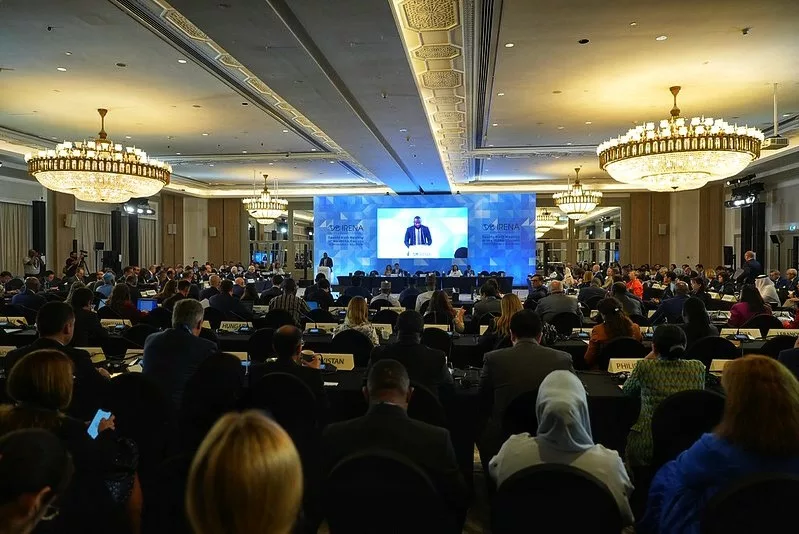
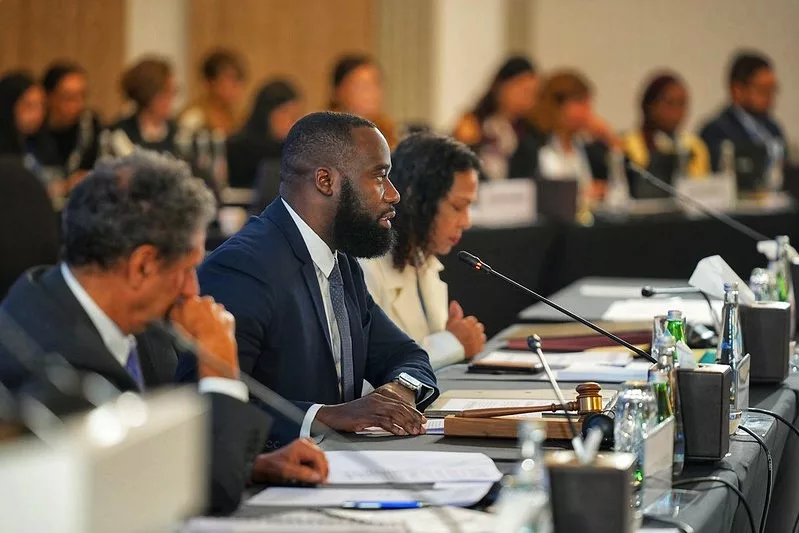
Mindful of the peculiar vulnerabilities and challenges of small island developing states (SIDS), like his own country of Antigua and Barbuda, Blair reminded the meeting of the crucial and urgent nature of their work.
“The climate crisis presents an existential threat, and a profound shift towards a renewables-based energy transition, as well as urgent and adequate financing of this mission, is critical. This is by now a known fact for SIDS and time is running out,” he declared.
This is not far removed from the commitment of Antigua and Barbuda’s widely expressed commitment to strengthening and accelerating its renewable based energy transition.
“The reality is while we have put forward efforts as a small island nation to accelerate our transition to renewables and play our part in tackling global emissions, we cannot do this alone. We need partners at the table, partners that would provide technical support and the transfer of renewable technology and concessional financing including grant funding,” Blair insisted.
The goals of IRENA connect and align with the ambitions of the fourth UN Conference on Small Island Developing States, which will be held in Antigua and Barbuda from May 27-30 next year under the theme “Charting the Course towards Resilient Prosperity”.
“SIDS have set ambitious energy targets in their NDCs, however most of these are conditional on external support from developed economies and the private sector,” the Antiguan diplomat explained.
Antigua and Barbuda is already positioning itself to play a pivotal role in this endeavour as it has already announced the launch of a SIDS centre of excellence, which will be the home to a global data hub, a technology and innovation mechanism, and a Davos-styled investment forum.
“All three components of the centre of excellence provide opportunities for renewable energy investment in SIDS and for vigorous discussions on international finance and energy transition diplomacy,” Blair added.

